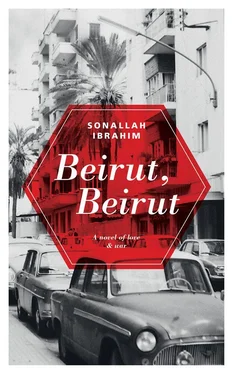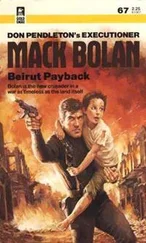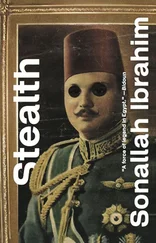The town of Marjayoun. Two beautiful young women in the uniform of the Phalangist militia have guns slung over their shoulders and are directing Israeli tanks through the narrow village street. They exchange words in Hebrew with Israeli soldiers.
A van carrying several European journalists makes its way along a dusty road surrounded by trees and rocks. Along the side of the road are wrecked Soviet-made armored cars. From a distance the sound of bombs from Israeli planes reverberates. A Lebanese gunman is in charge of steering the van. Through a loudspeaker, he says: “We Christians have made an alliance with the Jewish people.” Young men in the military uniform of the Phalangist militia and Saad Haddad’s forces wave to the passengers in the van. The van approaches the village of Klayaa. People come out onto the roads. Some of them call out: “ Shalom ! Welcome!” Several girls run behind the van and throw rice on it.
The village of Tibnin. White flags on the roofs and balconies of some homes whose appearance suggests that their owners are wealthy. A Lebanese vendor leans contentedly against a Mercedes, having spread out on the ground packets of cigarettes, bottles of whiskey, playing cards and condoms.
The town of Khiam. Wind whistles through shattered windows. An empty tin can rolls around, making an eerie clatter. The town is completely destroyed, with no trace of human life.
Title card:
The town of Khiam had a population of 140 thousand Shia before the Israeli attack.
The town mosque.
Title card:
Under the supervision of Israeli forces, the troops of breakaway Lebanese leader Saad Haddad gathered over one hundred Shia — men, women and children — in this mosque, and set them on fire.
The town of Marjayoun. Ezer Weizman, Israeli minister of defense, inspects the village. Saad Haddad walks up to Weizman and his companions. He stands at attention silently in front of them, then gives the military salute. He puts his arms around Weizman’s neck and hugs him for a long time, with tears pouring from his eyes.
Haddad: “All our respect to the Israeli Army. In the name of all Lebanese, I offer a greeting to the Israeli Army.”
A circle around a paragraph from Israel’s Davar newspaper: “The leader Haddad and the scholar Francis Rizq, teacher of literature in Klayaa and Haddad’s political advisor, are two cheerful and goodhearted individuals, especially when they are under the protection of the Israeli Army. Their happiness shows because they are basking in the light of Israeli and world opinion. They are prepared to answer questions from the press in Hebrew, Arabic, English and French.”
A convoy of green Land Rovers. The first car carries the leader Saad Haddad who wears the uniform of the Lebanese Army. He is surrounded by his men, armed with American machineguns. The cars pass through an abandoned village. Some of them stop in the village square.
One of Saad Haddad’s gunmen emerges from a house in the village balancing a wooden table on his head. He heads toward the Land Rover, puts the table in it, and goes back the way he came. Another gunman helps a colleague carry a big gas oven. A third gunman, annoyed, examines the contents of an abandoned house. He only finds a long steel rod, and in exasperation, he picks it up.
Title card:
On the fifth day after the start of the operation, the UN Security Council issued Resolution 425, calling for the withdrawal of the Israeli Army from southern Lebanon.
Two days later, at 6 pm on March 21, 1977, the Israeli Army held its fire after reaching the Litani River, following consultations by telephone between Begin and Washington. The day before, in Damascus, the foreign ministers from the Arab states who refused any acknowledgment of or negotiation with Israel (Syria, Libya, Iraq, Algeria and South Yemen) adjourned their meeting without deciding on any action against Israel.
Beaufort Castle, which has looked out over southern Lebanon since the days of the Crusaders. Israeli armored cars surround the castle. The main gate to the castle is blocked from inside by the piled bodies of the dead and wounded wearing Palestinian insignia.
A circle around a paragraph from an Arabic newspaper in East Jerusalem: “This war has restored respect to Palestinian dignity. It can be boasted that the Palestinians by themselves plunged into a war against Israel in full view of a feeble Arab world. The anger from the Arab world has created a feeling of shared involvement and unity, the likes of which the Palestinians have not witnessed for a long time.”
Washington. The US State Department building. An official spokesman to reporters: “The State Department is still studying whether Israel violated its purchase agreements for American weapons, which it used in South Lebanon. The agreements prohibit the use of advanced weaponry (such as F-15 planes) for attack purposes, although they are allowed to be used for defense.”
A circle around a paragraph from the Israeli newspaper Yedioth Ahronoth : “The commander of the Israeli Air Force, David Ivri, commented on the statement from the US State Department regarding weapons, saying, ‘I can state clearly and decisively that we did not violate any clause in the agreement. We used the planes to defend our forces from the air. This weapon is a kind of powerful shield for our forces, which didn’t result in any violation, because we are only talking about defense.’”
The Israeli minister of defense, Ezer Weizman, speaks with a correspondent from the Israeli newspaper Maariv :
Journalist: “In the course of the advance planning, did you take into consideration the complicated aspects of an operation of this size: 150,000 refugees fleeing in fear of the Israeli Army, and hundreds of civilians — or perhaps more — killed and wounded?”
Weizman: “… the Lebanese Civil War has produced lots of refugees, with no end in sight and in numbers that surpass those produced by the Israeli Army’s operation and the operation by the Jordanians in 1970, and by the Syrians when they entered Lebanon, when they slaughtered a lot more ‘ravagers’ than the Israeli Army has in the last ten days.”
Journalist: “You are an experienced soldier: didn’t you feel a pang of conscience when you saw the Israeli Army using its most advanced planes and artillery, and with a force such as this, against opponents supplied with — at best — Kalashnikovs, and in many cases opponents who have nothing to defend themselves with?”
Weizman: “In every war you have a heart, a conscience, and all kinds of remorse. Military men who have known the terrors of war and its atrocities up close love peace more than others do. But what should we have done? Should we supply our soldiers with Galil rifles because they have Kalashnikovs? Like anyone else, I have what we can call things that keep me up at night. But I have visited the Lebanese wounded in Israeli hospitals, and I was struck by a feeling that was not entirely pleasant.”
Title card:
• The cost of Operation Litani, according to Israeli sources:
• 30 million dollars.
• 1,300 Lebanese and Palestinian dead.
• Several thousand wounded.
• 150,000 inhabitants of South Lebanon who lost their homes and have taken refuge in the north.
A circle around a paragraph from the Israeli magazine Bamahaneh , under the byline of Haim Raviv: “The ‘ravagers’ and their organizations had two surprises in store for them last week: the first was the large scale of the Israeli Army’s operation in South Lebanon, and the second was the hope-crushing response from the Arab states.
“Egypt and Syria, the two leading states of the opposition, have made it known, each in its own way, that they are unprepared to enter into a confrontation with Israel. Egypt announced that it would continue to adhere to the peace initiative, and Syria acknowledged that it would not be dragged into a war with Israel prematurely.
Читать дальше












